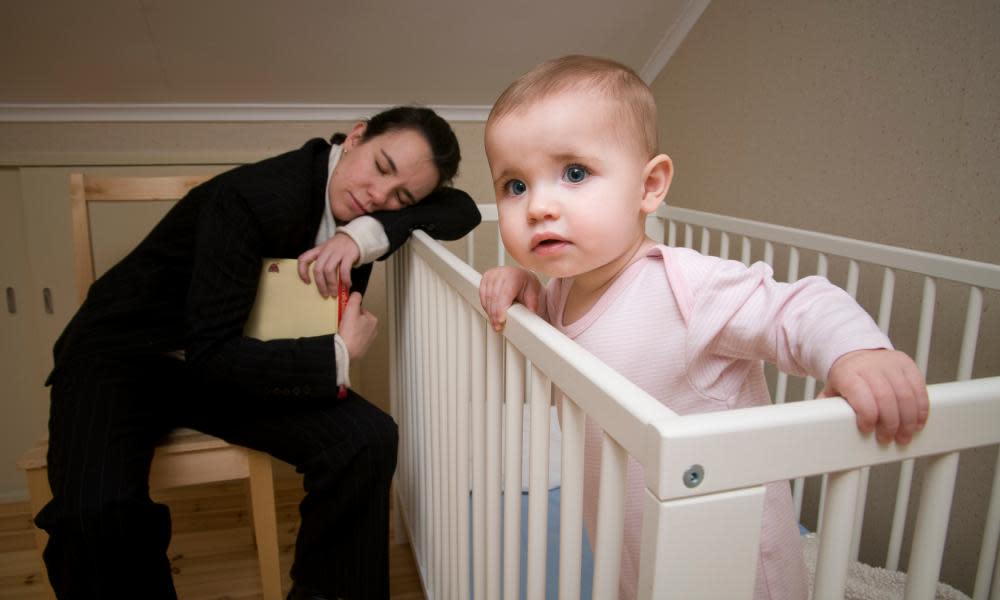Crib sheet: experts issue advice for new parents to cope with sleepless nights

Do try to be appear calm when putting your baby in their cot, even if it’s the last thing you feel. Don’t get obsessed with them having daytime naps. Do have a consistent wake time. And above all, sleep experts say, try not to feel guilty or anxious if your little one is waking up time and again through the night.
That is half the battle, said Prof Helen Ball, director of Durham University’s Infancy and Sleep Centre. A fractious baby really is a normal baby. “People do feel as if they must be doing something wrong. That they must be parenting improperly somehow.
“The ones who sleep through the night from an early age and never wake up, they are very rare. Although they are the only ones you ever hear about.”
The centre will next week launch a new kit for NHS health professionals that they hope will help new parents better deal with sleepless nights.
Sleep – or the lack of it – is one of the main concerns new parents have, yet NHS health visitors and community nurses receive little or no training on the subject.
Research showed that practitioners did not feel confident discussing strategies with parents, said Ball. “The only recourse they had really was to their own experience.”
Ball said popular beliefs that babies should sleep through the night still held sway but were based on studies conducted in the 1950s and 1960s when babies routinely slept in another room so parents could be unaware of their baby waking up.
“We know that it’s normal for babies to wake and feed at night throughout at least the first year.”
The new guidance, Sleep, Baby & You, is based on the Australian Possums Sleep Program, which teaches parents to manage expectations, to reduce negative thinking and encourages responsive infant care.
“Some of it is about framing what is normal or reframing expectations about what is normal and what we don’t need to be anxious about,” said Ball.
“Some of it is helping parents on how to cope. As in … ‘If this is normal and we’ve got to deal with this, how are we actually going to cope with this for several months?’”
It includes practical guidance and tips. For example, the importance of a baby being dialled down in order to fall asleep. If you are wound up then the baby will pick up on that, said Ball. “You might have to act calm even if you’re not calm.”
Babies really like comfort and contact so cuddle the baby until they calm down and don’t put them in the cot as they’re screaming.
Health professionals should encourage parents to avoid an obsession with daytime naps and suggest that naps happen on the go.
Ball said having a consistent wake time was more important than having one for bed time.
“There’s lots of information about how sleep works that the general public often hasn’t encountered before,” she said.
The guidance is important, Ball said, because lack of sleep “has been linked to increased symptoms of depression and anxiety among new mothers and fathers”.
It differs from the various forms of sleep training that exist, easily found online or available privately, which give tips on how to get baby to settle down during the night.
Some methods favour the baby being in a separate room and parents not responding when the baby cries. Others talk about popping in to see them at increasingly longer intervals. Others say the baby should be in the same room but you’re not meant to respond when they wake.
“Many parents don’t like the idea of not being responsive when their child is requesting their help or attention,” said Ball. “They don’t want sleep training but they want to know what else can they do.”
The guide will be launched at the centre’s annual conference on Monday, which will celebrate 22 years of world-leading research into infant sleep.
Ball said she and the centre had been working on the training tool, funded by the Economic and Social Research Council, for nearly four years. “I wanted to find a support programme that NHS staff could use to help parents who are struggling with infant sleep.”


